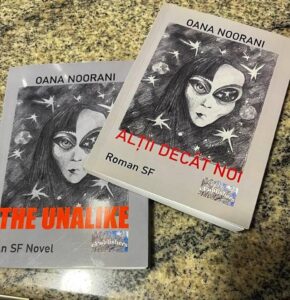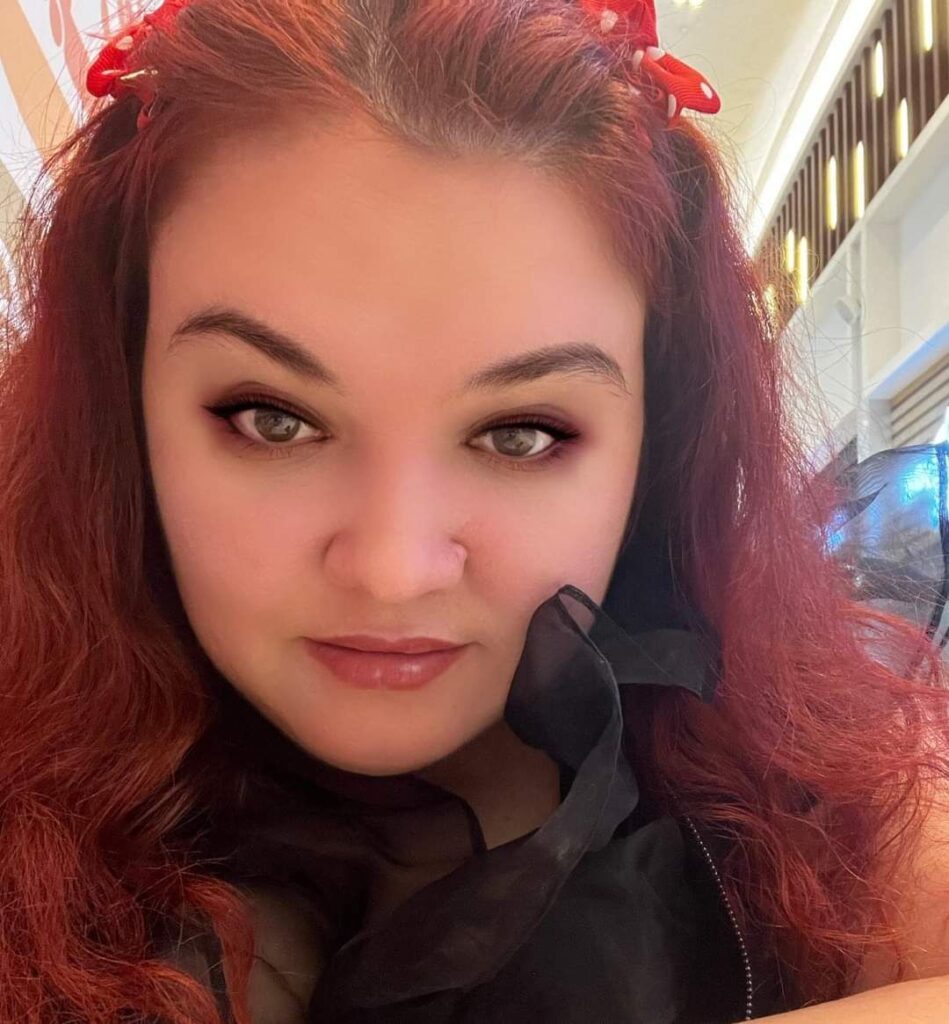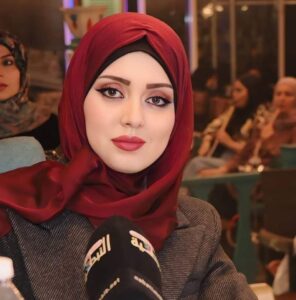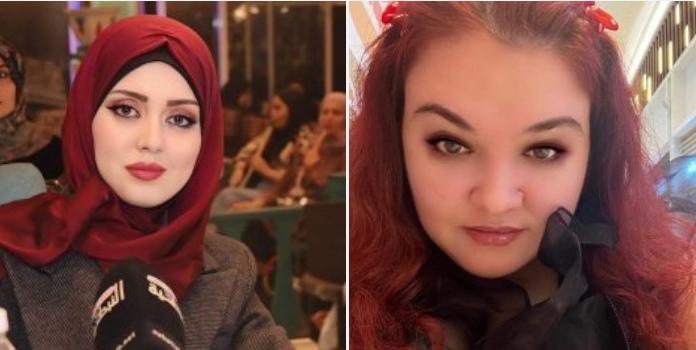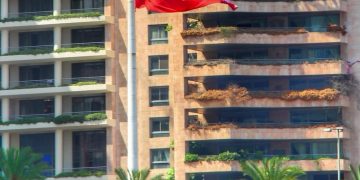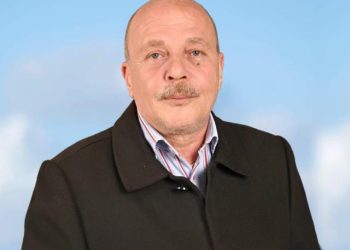الشاعرة الرومانية أوانا نوراني لمجلة أزهار الحرف حاورتها من لبنان جميلة بندر
*
Oana Noorani
Born in Bucharest on January 13, 1983.
- Graduated from the Faculty of Marketing and International Economic Affairs, Bucharest.
- Graduated from a theater art course, duration 1 year.
Azhar Al-Harf magazine had this dialogue with her
Interviewed by Jamila Bandar
1.Can you share some memories from your childhood in Bucharest and how they influenced your journey as a writer?
2.What sparked your interest in pursuing a degree in Marketing and International Economic Affairs?
3.How did your one-year theater art course contribute to your development as an author?
4.”Lumiana and the Law of Light in Darkness” is a captivating title. What inspired the storyline and themes of this novel?
5.”Teodora and the Young King” seems to have garnered attention with both Romanian and English editions. What motivated you to publish it in multiple languages?
6.Could you give us a glimpse into the world of “Others than us” and “The Unalike”? What sets these novels apart from your other works?
7.Your poetry collections have intriguing titles like “Scientific Precursor – Fragments beyond Time” and “Scientific Precursor – Quantum Pragmatism.” Can you explain the themes explored in these collections?
8.How do you approach the process of writing poetry compared to crafting novels?
9.Your works have been featured in various magazines and anthologies globally. How do you feel about your writings reaching such diverse audiences?
10.What challenges have you faced in your writing journey, and how have you overcome them?
11.What advice would you give to aspiring authors looking to establish themselves in the literary world?
12.Lastly, what projects are you currently working on, and what can readers expect from you in the future?
13.How do you balance your time between writing novels and crafting poetry, considering they require different creative processes?
14.With your background in marketing, how do you approach the promotion and marketing of your books? Do you have any strategies that you find particularly effective?
15.You’ve been featured in various anthologies and magazines. How do you navigate the process of submitting your work to different publications?
16.Your poetry collections seem to cover a wide range of scientific and philosophical concepts. How do you research and approach these topics to make them accessible to your readers?
17.As an author who writes in both English and Romanian, do you find any challenges or advantages in writing in multiple languages?
18.Finally, what message or feeling do you hope readers take away from your novels and poetry?
19.Do you have an idea about poetry forums, especially the Arab Poets Forum… Which is headed by the poet Nasser Ramadan Abdel Hamid?
On the other side, can you translate your works into Arabic one day?
Interviewed by
Jamila Bandar
from Lebanon
Member of the Arab Poets Forum
Editor of Azhar Al-Harf magazine
*
Answers to interview questions:
- Since childhood, I was attracted to literature. I read both classical and contemporary writers with a great interest and sought to continually learn from their works. I still remember my first poem called “The Winter”. Before I learned to ready, my parents used to read to me different stories, especially tales of good and evil. At the age of 9, I began writing poems. Much later, I started writing prose and expressed my ideas about on the dualities in the world. As a child, I was curious and wanted to absorb everything I could from my elders. Their differing opinions directed me to seek the truth and become to become an independent thinker.
- I chose the Faculty of Marketing and International Economic Affairs as my university major. This was because of the circumstances in Romania was emerging a market economy in Eastern Europe. The field of marketing represented the beginnings of a new understanding of the country’s economy. The faculty of Marketing and International Economic Affairs had was established to promote understanding of economic relations among the country’s new generations.
- I took a course in drama because I wanted to understand and convey the feelings of literary characters, that I had come across in my readings. I believe that there exists a great connection between literature and theatre. Literature exposes characters, while theatre transposes those characters to reality.
- Lumiana and the Law of the Light in the Dark, is a Romanian fantasy novel, represented my first publication. In Lumiana, I wanted to show that the dark cannot win against the light, if the light is there in every cell of our existence, even when we perceive an impending darkness. We must have the strength to see and feel the light, for the light will often dilute the darkness to disappearance. This novel had a sequel called The Prophecy.
- Teodora and the Young King is a novel in English. A few years later I translated it into Romanian. In this short fantasy novel, I focused on existential freedom and bringing it to the fore as a virtue.
- The novel “Other than Us” or “The Unalike” is a novel of acceptance that humans are not alone in the Universe. I started writing this novel because I disagreed with the negative portrayals of extraterrestrials or aliens. I felt the strong need to defend aliens, despite there being no evidence of their existence. I always felt a spiritual connection to the Universe. Since I was a child, my body was influenced by most of the happenings on Earth. Coming back to the novel, this is an introduction to some fundamental concepts of current and future science. However, while the novel does not focus on scientific theories, it is very engrossing.
- To answer this question, I must make a brief presentation of my origination of scientific poetry. This arose from my desire to convey my theories or hypotheses of our external world and the hidden realities. Since I was not employed in a formal sense, I independently studied everything I came across. I would also like to state that when I write my scientific poetry, I feel connected to some memories, both scientific and different events. Nothing is expressed without being fully understood. To make it more attractive and easier to read, scientific poetry is framed within the guise of science fiction action. Where there is more fantasy, I have even called it sci-fi poetry. The theories in the books have not been confirmed by researchers and it remains to be seen if they will ever be. This is because the findings of scientific research need to be donated to the people. “Scientific Precursor – Fragments beyond Time”, is a volume of scientific poetry that refers to fragments of imagination not perceived or framed in a specific time. Even in physics and medicine, we have timeless fragments, which I have presented in a second volume of scientific poetry called “Scientific Precursor – Dimensions in Adoration”. This was my fourth book of scientific poetry, and I chose this title because most of the poems are a dialogue between two galactic lovers with science as their central subject. “Scientific Precursor -Pragmatism Quantum” was my fifth volume of scientific poetry. This went into greater depth than the previous works and refers to many aspects of quantum physics, but the beginnings of a quantum mathematics. The word pragmatism leads the reader to think of the philosophical tradition that emphasizes the meaning of truth and in the present case of quantum truth in poetry. All subsequent volumes are a complement to previous volumes but have their own identities.
- In my novels, I present facts in detail. However, I present an essence of reality in my poems. Therefore, my volumes of scientific poetry are prosaic in nature.
- Thus far, my writings have not gained international exposure. Most of my publications have been published in Romania, except for a few that were released in English publications.
- Over time, I have encountered many challenges and tribulations, including the misunderstanding and skepticism of literati. But as I’ve always believed, we must take two steps forward and one step back if we are to move forward.
- Khalil Gibran said: “Trust in your dreams, for in them is hidden the gate to eternity.” My advice to aspiring writers is to be persistent and not be disillusioned by setbacks. Any though of giving up is a defeat and above all it is important to believe in one’s own vision.
- Currently, I am focusing on scientific poetry and its development by introducing new elements and structures. I am seeking to overcome the limits of this artistic form. Soon, I begin work on a sequel to my science fiction novel – The Unalike.
- While prose and poetry are two different forms of literature, in my view there are many connections between them. Shakespeare’s drama was a mix of prose and poetry. I try to create connections between my novels and poetry. I am planning to will write a poetic novel soon.
- I promote my works through social networks, literary forums, and the media. While I cannot opine for major writers and publications, for aspiring writers with small budget, the Internet is extremely useful promotional medium. Publishers and friends and family can also play an important role in promoting writers’ works.
- I was fortunate to meet a highly supportive individual, a promoter of literature and universal values, who appreciated my poetry. This distinguished poet is called Sadiqur Rahman Rumen, whom I would like to thank. In the past, I learned about various anthologies and magazines from Facebook.
- My poetry includes a variety of scientific theories; some of which can be difficult to comprehend. I have written poems that combine general scientific aspects and philosophy. My poems present different theories from various scientific fields. To make them easier for readers, I include graphs, exercises, formulas. My poems have stories and simple examples. Vocabulary is a combination of academic terms and art. The story in the form of dialogue is engaging and when it piques the reader’s interest, it is even easier to relate to.
- Given that Romanian is my mother tongue, writing in it comes much more naturally to me. However, writing in English is more challenging. I get assistance from family members on grammatical structures and in ensuring that my inherent message not lost in translation.
- The message is very simple: Freedom through science!
- I only recently heard about this forum headed by the poet Nasser Ramadan Abdel Hamid. I would like to have as much access to Arabic poetry as possible. I find Arab culture to be beautiful. In our universe, different cultures complement each other like a puzzle displaying a single image. I am interested in translating my works of scientific poetry into Arabic. If an opportunity presents itself, I will accept without any hesitation in offering science through art.
Thank you for this opportunity.
